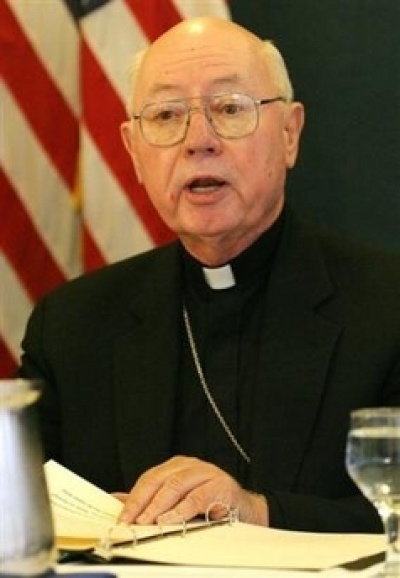Costs Soar as Catholic Clergy Sex Abuse Cases Rise
WASHINGTON (AP) - New figures released Thursday by the nation's Roman Catholic bishops show the unrelenting toll of the clergy sex abuse crisis: 783 new credible claims last year, most of which date back decades, and costs of nearly $467 million.

While researchers who analyzed 50 years of data on molestation claims concluded the number of new cases is declining, the church is still paying a heavy price for predatory clergy.
The abuse problem was already known to have cost dioceses more than $1 billion since 1950, including some expenses paid last year. Still, Teresa Kettelkamp, director of the bishops' Office of Child and Youth Protection, said the total abuse-related expenses shelled out in 2005 were likely the largest ever for a single year.
The total number of accusations against Catholic clergy now stands at more than 12,000 since 1950.
The latest statistics were released as part of the third audit U.S. bishops commissioned to restore trust in their leadership after abuse allegations soared in 2002. Auditors found that 88.5 percent of dioceses had put in place full safeguards for children required by the bishops' reforms.
However, advocates for victims called the audit inadequate, since 104 of the 195 American dioceses conducted a "self-audit." In previous years, teams from the Gavin Group, a private firm led by former FBI agent William Gavin, had conducted onsite audits in all participating dioceses.
Speaking at a news conference, Gavin and a key church official agreed with the critics that the new report didn't capture the full picture.
They pointed to the recent failure of the Archdiocese of Chicago to remove an accused priest from church work for four months until he was criminally charged. The archdiocese was found to be in full compliance in the 2005 audit, but an outside investigator hired by Chicago Cardinal Francis George to look into the priest's case found a string of stunning lapses by archdiocesan staff that left children at risk.
The failures had an impact beyond Chicago because George played a key role in shaping the bishops' new discipline plan that permanently bars guilty priests from church work. George also is the vice president of the U.S. Conference of Catholic Bishops.
"To find that this happened in Chicago was a great sorrow and disappointment to all of us," said Patricia Ewers, chairwoman of the National Review Board, the bishops' lay watchdog panel. "If people do not live up to their responsibilities, do not communicate effectively, then you can have the kind of terrible consequences you have in Chicago."
Ewers said the Chicago case provided strong evidence that the bishops need to expand the scope of their audits and measure whether child protection programs are working. Gavin supported the idea, which will be brought before the nation's bishops.
In a companion report, researchers from the John Jay College of Criminal Justice, who the bishops had hired to tally abuse claims nationwide from 1950-2002, released a new analysis of that data which found the number of new abuse cases peaked in the 1970s and 1980s and then began to decline.
In 2004, dioceses received more than 1,092 new abuse claims, in addition to the 10,667 claims the American church received from 1950-2002. However, just like the claims in 2005, most of the allegations involved incidents from decades ago.
"The decrease in sex abuse cases is real," said Karen Terry, principal investigator on the study.
The bishops' abuse prevention policy requires dioceses to hire victim assistance coordinators, form review boards to help evaluate abuse claims, conduct background checks on staff and volunteers and teach children to protect themselves from predators.
The biggest failure auditors found was that several dioceses don't have full safe environment training for children, and four dioceses have not fully complied with the call for background checks. The four dioceses are Burlington, Vt.; Portland, Maine; Salina, Kan.; and the Apostolic Exarchate for Armenian Catholics in New York.
Barbara Blaine, a found of the Survivors Network of Those Abused by Priests, said none of the programs will work as long as no one is monitoring the bishops





















